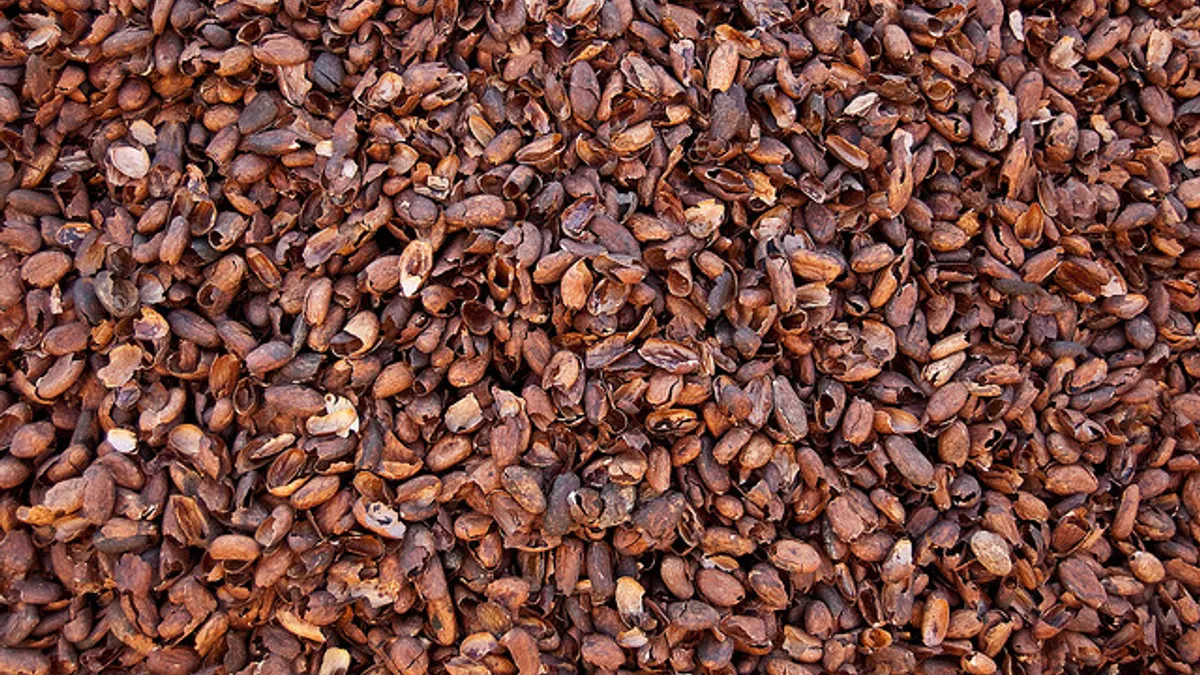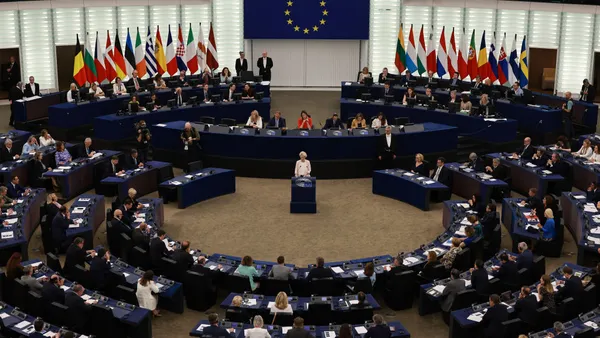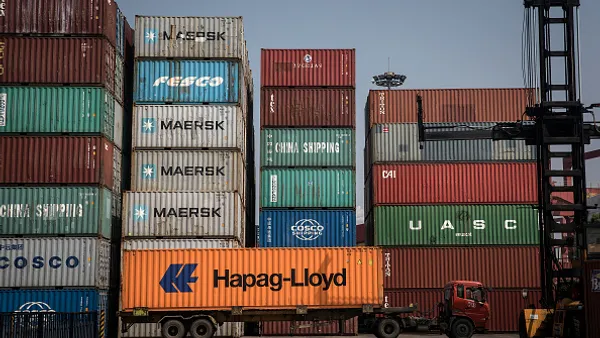Dive Brief:
- Cargill’s strategic action plan, named "Protect Our Planet," provides “concrete actions” to achieve 100% cocoa bean traceability and includes a commitment of “no further conversion of any forest land in Ghana and the Ivory Coast for cocoa production,” according to a press release.
- The plan targets three cocoa-origin countries in addition to Ghana and the Ivory Coast — Brazil, Indonesia and Cameroon — in addition to the indirect cocoa supply chain.
- Cargill's goal through Protect Our Planet is to eliminate deforestation from its supply chain by 2030. “We have made important first steps, but there is more to be done, and we believe that this action plan is how we will reach our goal,” Cargill Cocoa & Chocolate president Harold Poelma said in the release.
Dive Insight:
Cocoa production has become concentrated in West Africa, where the deforestation is most pronounced, according to a study released by World Bank. The report, produced by the BioCarbon Fund and the Forest Carbon Partnership Facility (FCPF), together with the World Cocoa Foundation and Climate Focus, describes overarching principles and key strategies these stakeholders can implement to lay the groundwork for deforestation-free production in the cocoa sector.
“Global production relies almost entirely on five to six million smallholders, and beyond the smallholder production level the cocoa value chain is highly concentrated among several traders, grinders and chocolate producers,” the study says. “While the deforestation occurs at the smallholder level, it is the companies, governments, and NGOs that need to take action due to the limited technical and economic capacity of smallholders to enact the necessary reforms on their own.”
Cargill’s effort is based on the five sustainability goals for a sustainable cocoa sector it introduced in October 2017. Protect Our Planet outlines how the company will achieve those goals, and “secure the future livelihoods and resilience of our smallholder farming partners.”
Key tenets of the plan include two major elements of all successful supply chains — transparency and traceability. Cargill has committed to digitally mapping 100% of all farms in its direct supply chain and continually monitoring for deforestation risks. Traceability technology, including bar-coding bags of beans, will help trace the product to its source farm to ensure that no cocoa comes from protected areas.
The company says it already has achieved 100% traceability in Ghana, with Ivory Coast — where more than 80,000 of 120,000 farms in its direct supply chain have been mapped — following in 2020.
A year ago, Cargill joined with 34 other chocolate and cocoa companies to sign the Cocoa & Forests Initiative and the IDH Sustainable Trade Initiative to achieve a fair and secure cocoa supply chain. Protect Our Planet also includes supplier engagement and the sharing of annual progress reports.














